
Whitney Houston was, without a doubt, a supernova in the galaxy of pop music. Her voice, a powerful instrument capable of delivering both soaring anthems and tender ballads, captivated millions across the globe throughout the 1980s and 1990s. From chart-topping hits like “How Will I Know” to the timeless masterpiece “I Will Always Love You,” which became a global sensation after her starring role in “The Bodyguard,” she redefined what it meant to be a pop icon, blending easygoing charm with undeniable vocal prowess.
Yet, beneath the radiant public persona carefully crafted by her team, record labels, and film studios, Whitney’s life was a complex tapestry woven with threads of struggle, scandal, and profound sadness. Her sudden passing at the age of 48 in 2012 sent shockwaves through the world, leaving fans and loved ones reeling. In the wake of this tragedy, a deluge of stories and secrets began to surface, shared by those who knew her intimately and finally felt ready to speak.
These posthumous revelations painted a more complete, often heartbreaking, picture of the woman behind the legend. From her earliest career ambitions to the hidden traumas of her childhood, the true origins of her battle with addiction, and the intricate dynamics of her most significant relationships, a deeper understanding of Whitney Houston emerged. Join us as we explore some of the most compelling truths that came to light only after the music stopped, offering a poignant glimpse into the life of an unparalleled superstar.

1. **Whitney Almost Became a Huxtable on “The Cosby Show”** It’s almost impossible to imagine a different path for Whitney Houston, given her unparalleled success in music and film. But early in her career, she stood at a pivotal crossroads that could have entirely reshaped her destiny. In the early 1980s, as she was just beginning to launch her musical ambitions, Whitney also harbored an interest in acting, leading her to an audition for what would become one of television’s most iconic sitcoms: “The Cosby Show.”
The producers of the NBC series, centered around a professional couple and their five children, were incredibly impressed by Houston’s talent and charisma. So much so, that they offered her the significant role of Denise Huxtable, the cool and fashion-forward teenage daughter. This was a massive opportunity, poised to introduce her to a national audience in a major way before her music career truly exploded.
However, as “The Cosby Show” geared up for production to debut in the fall of 1984, Whitney made a choice that stunned many. Upon realizing that signing the contract would professionally tether her to the show for at least five seasons, she made the courageous decision to back out. Her heart, she realized, was set firmly on music. Jay Sandrich, the show’s house director, later recounted to the Television Academy Foundation about her decision: “This girl we brought back from New York said to me, ‘I can’t sign this contract and I said ‘why?’ She said, ‘Well I want to be a singer.'” It was a testament to her clear vision and unwavering commitment to her vocal artistry, a choice that ultimately paved the way for her legendary musical career.
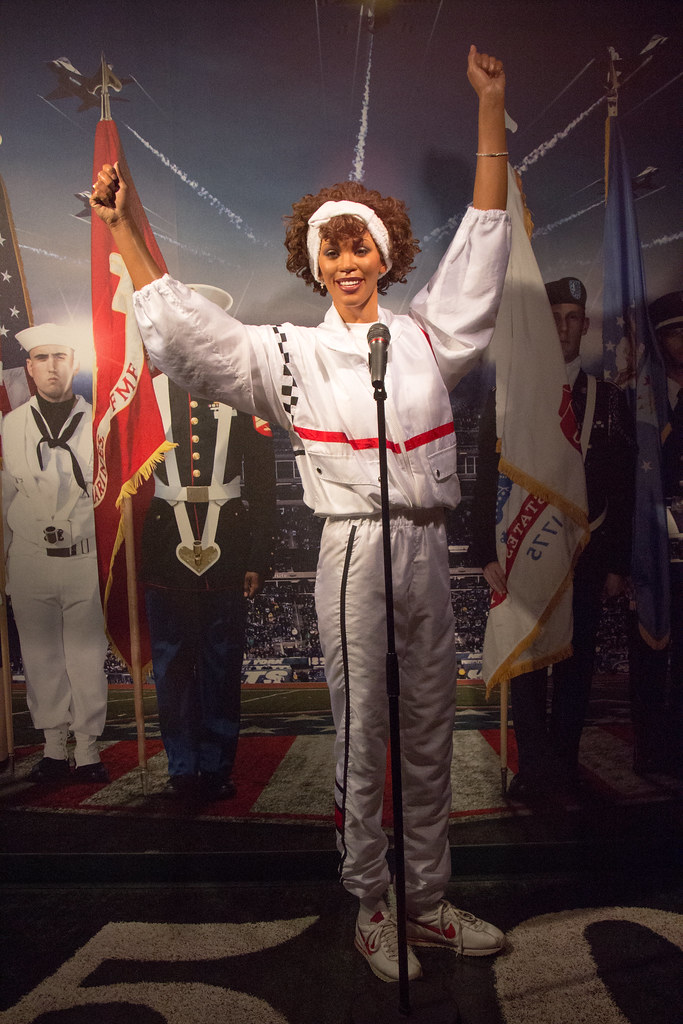
2. **Childhood Abuse by a Family Member: Dee Dee Warwick** Among the most shocking and heartbreaking revelations to emerge after Whitney Houston’s death was the disclosure of profound childhood trauma. In 2018, nearly a decade after Dee Dee Warwick – sister of Dionne Warwick and cousin to Whitney – passed away, a devastating allegation surfaced: the gospel singer had sexually assaulted the pop star during her childhood. This deeply disturbing information was brought to light in the 2018 documentary “Whitney,” a film produced with the cooperation and supervision of Houston’s family.
The documentary detailed how Houston’s personal assistant, Mary Jones, attested that her employer had confided this horrifying secret to her. Further corroboration came from Gary Garland-Houston, one of Whitney’s brothers, who reported that Warwick had also assaulted him. These accounts painted a picture of a childhood far more harrowing than the public ever knew, shattering the image of the wholesome “America’s Sweetheart” that had been so carefully constructed.
According to Jones, the abuse had long-lasting and severe psychological ramifications for Houston. It led to significant identity issues and caused her to question her sexual orientation. Disturbingly, the lingering memory of the assault was also linked to a ramp-up in drug misuse during the final years of Whitney’s life, suggesting a deep connection between her childhood trauma and her later struggles.
The documentary “Whitney” highlighted how these dark moments, where she was allegedly molested by her cousin, Dee Dee Warwick, around ages 7 to 9 while staying with relatives, had a profound impact. Family members suggested this abuse may have “made her question her sexual preference,” adding another layer of complexity to her inner world and offering a crucial, albeit painful, insight into the hidden wounds that Whitney carried throughout her life.
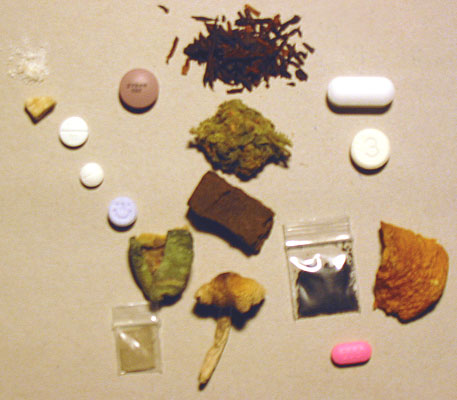
3. **Early Introduction to Drugs, Not Bobby Brown’s Influence** For years, a pervasive narrative dominated the public perception of Whitney Houston’s struggles with addiction: the idea that her husband, Bobby Brown, was the “bad boy” who led the innocent pop princess down a dark path. This story became almost folklore, suggesting that Brown introduced her to the drugs that contributed to her well-documented declines in health and career. However, following Whitney’s death in 2012, those who knew her best began to dismantle this myth, offering a starkly different reality.
Close friends and associates revealed that Whitney’s drug use predated her relationship with Bobby Brown by a significant margin. Rudi Dolezal, co-director of the documentary “Whitney: Can I Be Me,” plainly stated to Page Six, “Whitney took drugs and smoked weed a long time before she could even spell ‘Bobby Brown.'” Another friend, Ellin LaVar, confirmed in the same documentary, “Everybody did it. And her brothers gave it to her. It was just something you do to have fun.” These testimonies highlighted a culture of casual drug use that Whitney was exposed to long before her marriage.
Perhaps the most poignant and definitive revelation came from Whitney’s own brother, Michael Houston. In a candid 2013 interview with Oprah Winfrey, he bravely admitted to introducing his younger sister to drugs, specifically various forms of cocaine, in the 1980s. Michael and Whitney were largely inseparable from childhood into early adulthood, sharing many experiences. He confessed, “When you get into drugs, you do that together, too, and it just got out of hand.” Overcome with regret, he added, “I feel responsible for it, I let it go so far.” This deeply personal admission finally clarified that Whitney’s struggle with substance misuse began much earlier than commonly believed, absolving Bobby Brown of the sole blame often placed upon him.
Cissy Houston also echoed this sentiment in her tell-all book, “Remembering Whitney: My Story of Love, Loss and the Night the Music Stopped,” stating she did not “blame Bobby for introducing Nippy to drugs or for the things that ended up happening to her.” Her son, Michael, who also struggled with drugs, further confessed to Oprah that he introduced Whitney to cocaine in the 1980s, before she met Brown, saying, “I feel responsible I let it go so far.” He highlighted their close bond, stating, “We were always being together most of the time and her following behind me. I taught her to drive, we played together, everything you do as you’re growing up.” He concluded, “If you do drugs, you do that together too… and it just got out of hand. This drug is rough.”

4. **”The Bodyguard” Story Had Real-Life Inspirations** Whitney Houston’s transition from music superstar to acclaimed actress in the 1992 blockbuster “The Bodyguard” was seamless, cementing her status as a multi-talented icon. In the film, she played Rachel Marron, a stalked pop star who finds love and protection with her bodyguard, portrayed by Kevin Costner. While the script was credited to Oscar-nominated screenwriter Lawrence Kasdan, it appears that elements of Houston’s own experiences may have inadvertently contributed to the film’s realistic portrayal of a famous musician’s life.
In 1988, four years before “The Bodyguard” hit theaters, Houston’s team hired David Roberts, a former North Wales and London police officer, to serve as her bodyguard. Initially contracted for a three-month European engagement, Roberts’ tenure ultimately stretched for nearly seven years. Despite being unfamiliar with Houston or her music at the time of his hiring, he quickly developed a profound admiration for her.
“She had the voice of an angel, clearly,” Roberts recalled in 2025. He added, “I can’t imagine a high-profile personality in so much demand being easier to look after.” The parallels between Roberts’ real-life role and the movie’s plot are striking. As part of his duties, Roberts was responsible for checking Houston into hotels, where he frequently used the code name “Rachel Marron” — the exact name of Whitney’s character in the film.
Moreover, Roberts genuinely had to protect his client from credible stalker threats, a central plot point of “The Bodyguard.” These coincidences suggest that the screenplay, whether consciously or subconsciously, drew from the lived realities surrounding the global pop star, lending an unexpected layer of authenticity to the cinematic romance that captivated millions.
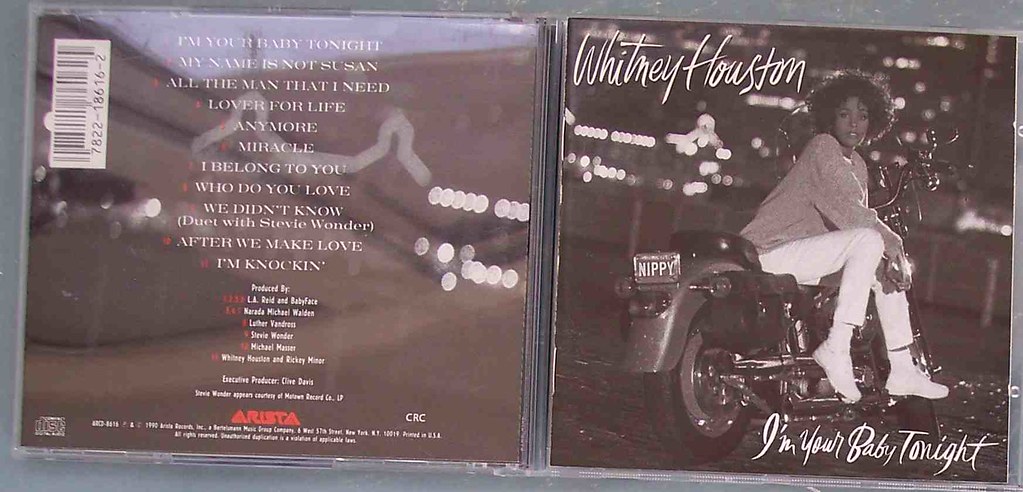
5. **Eddie Murphy Courted Her, But Bobby Brown Won Her Hand** The highly visible romance between Whitney Houston and Bobby Brown, which blossomed in 1989 and led to their marriage in 1992, was a major focus of tabloid attention. They quickly became one of entertainment’s most talked-about power couples. However, after Whitney’s death, a surprising truth emerged: their relationship wasn’t a simple love story, but rather a corner of a complicated love triangle involving another superstar, Eddie Murphy.
Whitney’s close friend, Robyn Crawford, shed light on this dynamic in her 2019 memoir, “A Song for You: My Life with Whitney Houston.” Crawford revealed that Whitney was initially “more interested in Eddie Murphy, but he was elusive.” Murphy, known for his comedic genius and acting prowess, had repeatedly tried to woo Houston, convincing her to go out on dates. Yet, frustratingly for Whitney, he would often fail to show up, leaving her heartbroken and confused.
When Houston and Brown decided to marry in 1992, the news apparently hit Murphy hard. Overcome with regret, he took a drastic step: he telephoned Whitney on the very morning of her wedding to Bobby Brown, pleading with her to reconsider her decision. “Eddie Murphy called to say she was making a mistake,” Crawford disclosed.
Despite his last-ditch effort, Whitney chose to go through with her marriage to Bobby, ultimately setting the course for one of the most tumultuous and intensely scrutinized relationships in celebrity history. This revelation highlights the emotional complexities Whitney navigated behind her public smile, demonstrating that even a global icon faced personal romantic dilemmas far from the public eye.
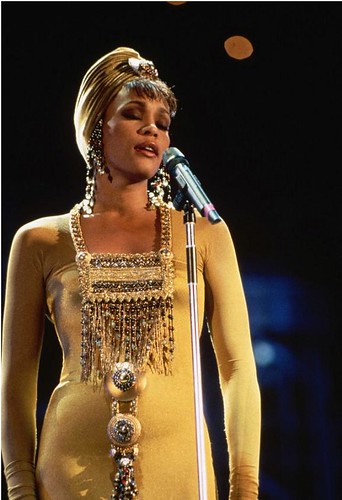
6. **She and Bobby Brown Mutually Developed Their Talents** When Whitney Houston first burst onto the music scene in the early 1980s, her talent was undeniable, but primarily focused on her phenomenal singing voice. She could effortlessly navigate soul, pop, gospel, and adult contemporary genres with a vocal range that was truly generational. Her husband, Bobby Brown, similarly had a distinct set of skills. As a member of New Edition, he was renowned more for his captivating dancing than his vocal abilities.
During their long and often tumultuous relationship, which began with dating in 1989 and concluded with their marriage dissolution in 2007, Whitney and Bobby engaged in a surprising form of mutual mentorship. They actively helped each other refine their respective craft, bridging gaps in their individual skill sets. Whitney, the vocal powerhouse, took on the role of coaching Bobby to become a better singer.
“She taught me how to use my voice, how to blend my notes, how to chop my voice when I needed,” Brown candidly shared in his 2016 memoir, “Every Little Step.” In return, Bobby, with his dynamic stage presence and natural rhythm, helped Whitney to loosen up and embrace more physical expression in her performances.
“I taught her how to dance. At first, she was uncomfortable with dancing,” he recounted. He summed up their collaborative dynamic perfectly: “With the two of us working together, sharing our strengths, I think we made each other better entertainers.” This often-overlooked aspect of their relationship reveals a deeper, more supportive connection amidst the chaos that frequently surrounded them, highlighting a shared journey of artistic growth.
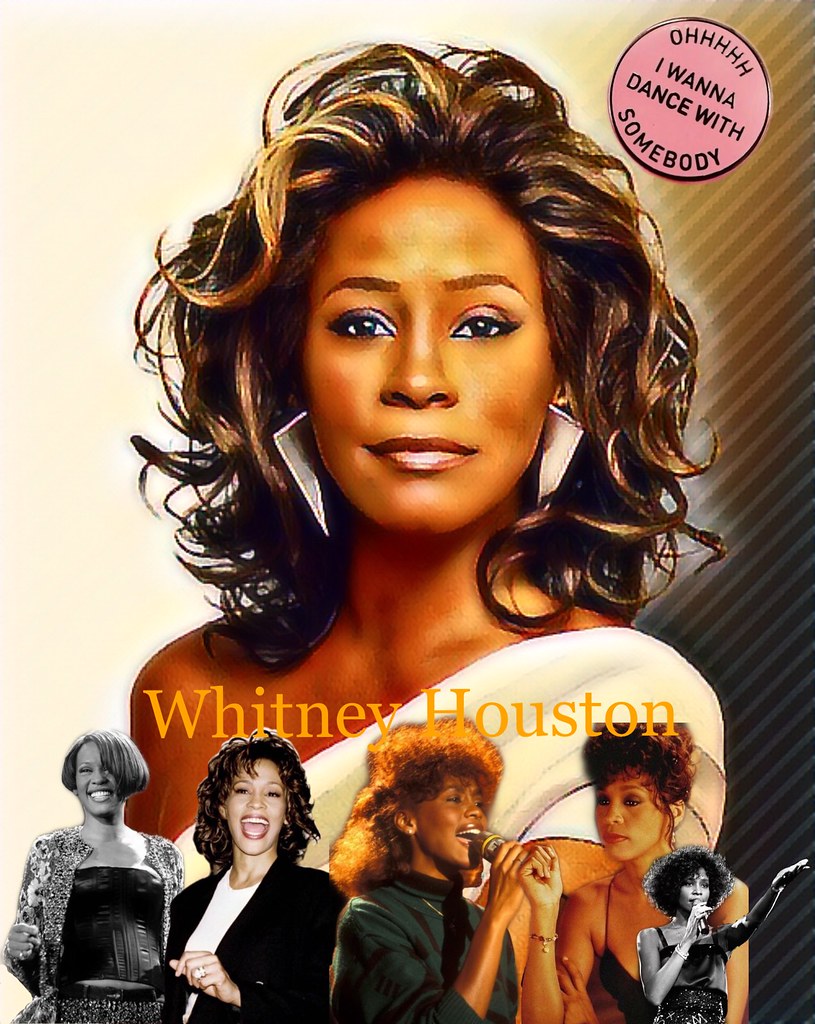
7. **Her Family Tried to Shut Down Her Long Romance with Her Best Friend**One of the most enduring mysteries surrounding Whitney Houston’s private life was the nature of her deep bond with Robyn Crawford. They met as teenagers in New Jersey and forged an immediate, intense connection that lasted for decades, publicly recognized as best friends and personal assistant. However, after Whitney’s death, several associates revealed in the 2017 documentary “Whitney: Can I Be Me” that their relationship likely took on a romantic dimension at times, providing a “safe place” for Whitney, as her friend Ellin Lavar noted.
This profound connection was a source of undeniable strength and comfort for Whitney, but it also became a point of contention and concern for her family, particularly her father, John Houston. He reportedly harbored deep worries that the media would uncover the romantic, same-sex nature of their relationship. In the less-enlightened 1990s, such a revelation was feared to be catastrophic for Whitney’s carefully curated image as “America’s Sweetheart” and could potentially ruin her soaring career.
The lengths John Houston went to try and sever this relationship were astonishing. He allegedly offered a bodyguard $6,000 to make Crawford “disappear somehow,” an alarming proposal that the individual fortunately refused. Further illustrating the family’s desperation to keep this aspect of Whitney’s life under wraps, a 1992 incident, later investigated by the FBI, involved John Houston paying off a lawyer who had threatened to publicly expose Whitney and Crawford’s relationship.
Even Cissy Houston, Whitney’s mother, addressed the speculation in her book, “Remembering Whitney,” admitting she didn’t “honestly know what exactly went on between them, back when they first met or later on.” She acknowledged, “I do know that Nippy and Robyn cared a lot about each other.” Meanwhile, Whitney herself vehemently denied any romantic involvement publicly, telling Rolling Stone in 1993, “You mean to tell me that if I have a woman friend, I have to have a lesbian relationship with her? That’s bulls***.” It wasn’t until 2019 that Crawford herself finally published “A Song For You,” a memoir that openly recounted her complicated and intimate relationship with the beloved star, shedding definitive light on this long-whispered aspect of Whitney’s life.

8. **She Had a Pained Relationship with Her Daughter**Whitney Houston’s only child, Bobbi Kristina Brown, born in 1993 during her marriage to Bobby Brown, shared a deeply complex and often heartbreaking relationship with her famous mother. While public photographs frequently showed a loving mother-daughter duo, the reality, as revealed in the 2018 documentary “Whitney,” was far more strained, particularly in Bobbi Kristina’s early years. This deeply personal insight painted a stark contrast to the public narrative.
Shockingly, the documentary disclosed that after Bobbi Kristina’s birth, Whitney rarely saw her daughter for extended periods. Days after the baby arrived, Whitney reportedly dropped her off unannounced at a family friend’s home. She returned approximately three months later for a brief check-in, only to leave the associate responsible for raising Bobbi Kristina for the next eight years. This prolonged separation during critical developmental years undoubtedly created an emotional chasm that would prove difficult to bridge.
When Whitney eventually resumed custody, the natural order of a parent-child relationship often became tragically reversed. As Bobbi Kristina approached her teenage years, she was frequently tasked with the overwhelming responsibility of caring for her mother during Whitney’s most severe periods of drug misuse. This profound burden on a child, forced to act as a caregiver rather than receiving care, had devastating psychological consequences.
By the time Bobbi Kristina reached young adulthood, she harbored intense resentment, even hatred, towards her mother. The weight of their shared struggles with addiction and the emotional scars of her upbringing led to tragic outcomes. At one point, while living with Whitney, Bobbi Kristina attempted to die by suicide and required hospitalization. Disturbingly, she also confessed to Whitney’s sister-in-law, Pat Houston, that she fantasized about murdering her mother. Like Whitney, Bobbi Kristina ultimately succumbed to her own battles with substance abuse, leading to her equally tragic death in 2015, mirroring the very struggles that had defined much of her mother’s life.

9. **Whitney Houston Died from a Combination of Factors**The world reeled on February 11, 2012, when Whitney Houston was found unresponsive in her hotel room at the Beverly Hilton in Beverly Hills. She had been in Los Angeles contributing to the festivities surrounding the Grammy Awards, performing at an event just two days prior. Her bodyguard discovered her, and despite revival efforts, she was tragically declared dead at approximately 4 p.m., sending shockwaves across the globe and leaving millions in mourning.
Authorities on the scene quickly determined there were no signs of malicious intent, but the suddenness of her death at 48 years old, especially given her iconic status, led the Los Angeles County’s coroner’s office to perform an autopsy. The findings offered a clearer, albeit heartbreaking, picture of the circumstances surrounding her passing. She was found submerged in the full bathtub of her hotel room, with her face in the water, an image that haunted many who learned of it.
Further investigations uncovered drug paraphernalia near her body, including a spoon bearing traces of illicit substances. Additionally, multiple prescription bottles were found in her room. Blood and toxicology tests confirmed that Whitney was under the influence of a staggering twelve different medications at the time of her death. These tests also definitively established that she was a frequent user of cocaine, with high quantities of the drug present in her system when she passed.
The coroner’s office ultimately concluded that Whitney Houston’s death was accidental, caused by drowning, but it was crucially exacerbated by a lethal combination of cocaine misuse and underlying heart disease. This tragic confluence of factors provided a definitive answer to the circumstances of her passing, revealing the devastating toll her personal struggles had taken on her health. Her mother, Cissy Houston, vividly recalled the moment she learned the news, describing her son Gary’s hysterical call and the shattering realization: “That was the moment my whole world shattered.”
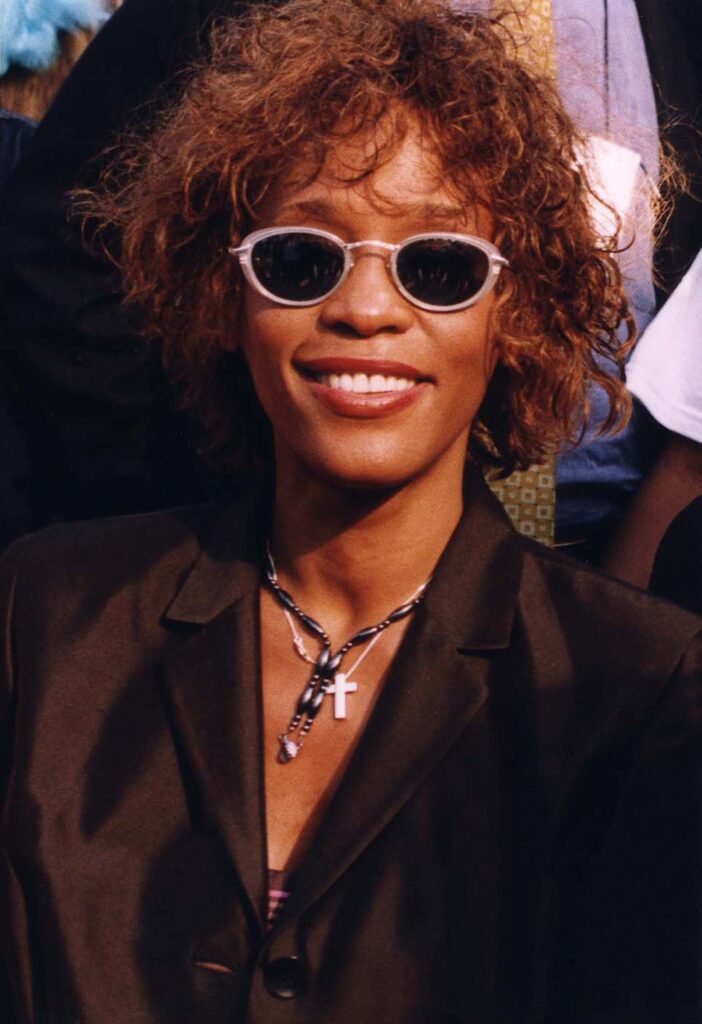
10. **She Left Behind a Lost Single**Even after her passing, Whitney Houston continued to surprise and delight fans with her unparalleled vocal gifts. A remarkable example of her enduring musical legacy came in 2019, when a previously unheard, joyful, and soulful rendition of Steve Winwood’s 1986 hit “Higher Love” was finally released. This track, recorded for her third studio album, “I’m Your Baby Tonight,” released in 1990, had been a hidden gem for decades, only appearing as a bonus track on the Japanese issue of the album during her lifetime.
Narada Michael Walden, the album’s producer, had finished Houston’s version of “Higher Love” and submitted it to Clive Davis, the legendary head of Arista Records, for his approval. However, in a decision that would keep this incredible recording from the wider public for years, Davis chose not to include it on the main album. As Davis himself explained to Rolling Stone in 2019, “We didn’t want her being a cover artist at the time,” reflecting a strategic decision to focus on original material for the global superstar.
For nearly three decades, Whitney’s powerful and uplifting performance of “Higher Love” remained largely unheard by her vast fanbase. It wasn’t until 2019, seven years after her death, that Pat Houston, the executor of Whitney’s estate, made arrangements for the track to finally be made available to the world. By this time, Arista Records had been absorbed into RCA Records, and a fresh approach was taken to bring the song into the modern era.
Kygo, a renowned remixer, was brought in to craft a new arrangement around Whitney’s magnificent original vocals. The resulting track, credited to Kygo and Whitney Houston, fused electronic instruments and vibrant horns, creating a contemporary soundscape that perfectly complemented her timeless voice. The release was a phenomenal success, becoming a posthumous hit for Houston and placing on the American adult contemporary, dance, and pop charts, proving that her voice truly transcended time and continued to captivate new generations.
Read more about: Remembering the Legends: 14 Famous Faces We Lost in 2023 Whose Legacies Will Never Fade

11. **Whitney Houston Died Before She Could Make a Comeback**By 2012, Whitney Houston’s once-unstoppable career had undeniably entered a difficult phase. Her last original hit single dated back to 1999, and her most recent starring role in a feature film, “The Preacher’s Wife,” was from 1996. The world was eager for her return, and Whitney herself was determined to reclaim her cinematic glory with a passion project that held deep personal meaning for her: a remake of “Sparkle,” a 1976 drama that was her favorite movie.
Houston had taken on a dual role, not only starring as the disapproving mother of three sisters aspiring to be pop singers but also serving as a producer. This was more than just a film; it was a deeply personal endeavor she championed for 12 years, tirelessly working to bring the new “Sparkle” to the screen. The production faced numerous setbacks, including the tragic death of its initially planned star, Aaliyah, and significant delays caused by Whitney’s own well-documented struggles with substance misuse.
Despite the hurdles, “Sparkle” finally moved into production in 2011, with Houston sharing the screen with talents like Jordin Sparks and Carmen Ejogo. The filming wrapped, and there was a palpable sense of renewed hope and energy surrounding Whitney’s involvement. Friends observed a seemingly clean and reinvigorated Houston, who, upon the conclusion of filming, expressed a reluctance to leave the Hollywood set. A friend suggested she feared a relapse once she returned home without the structure and purpose a job provided.
Tragically, Whitney Houston would not live to witness the public’s reception of her long-awaited comeback. She passed away in February 2012, a mere six months before “Sparkle” finally reached movie theaters. The film, released posthumously, became a poignant testament to her enduring artistic spirit and her final, determined effort to return to the spotlight she so powerfully commanded throughout her extraordinary life. It was a comeback that, sadly, she never got to fully experience.
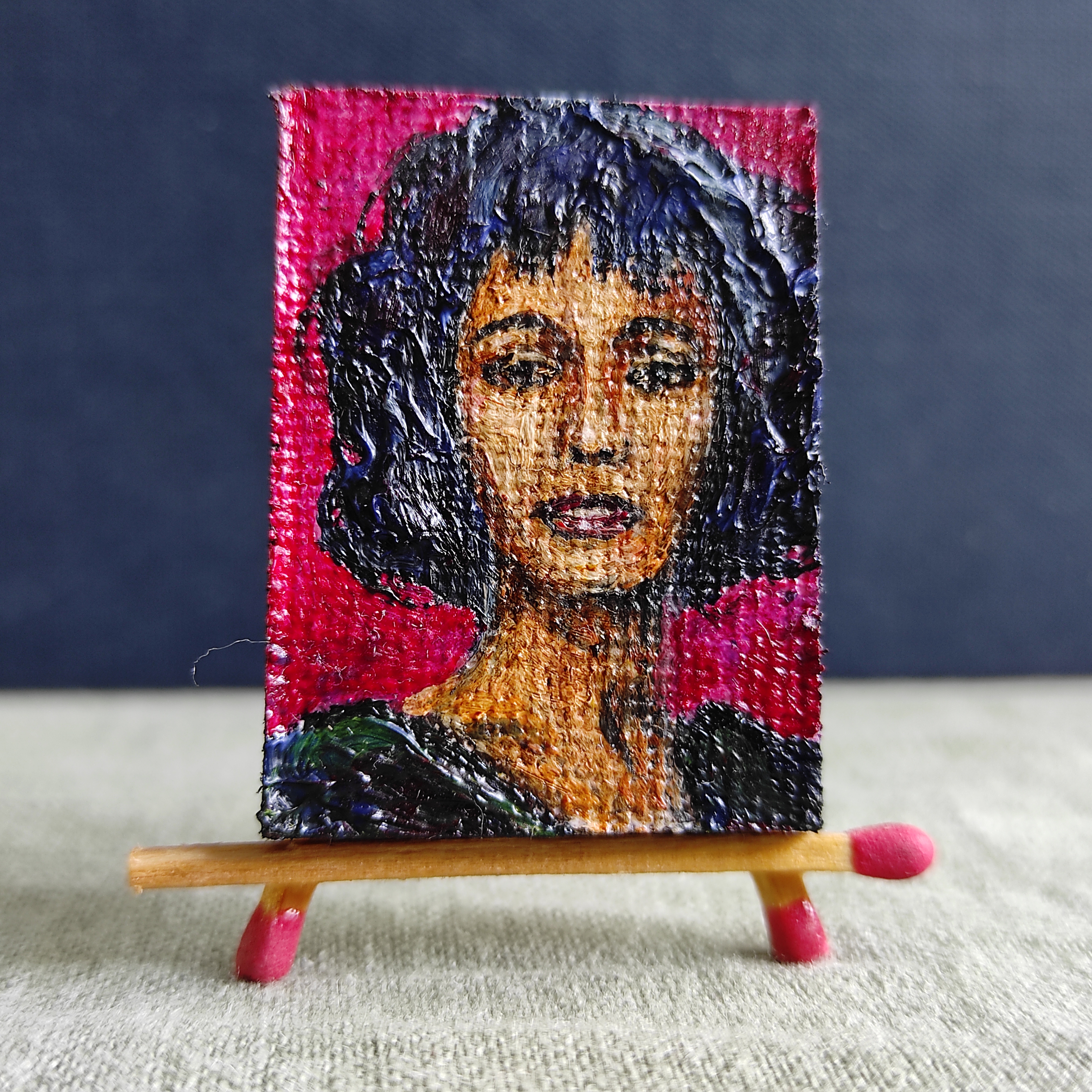
12. **Whitney Houston Had Another Child, Unofficially**In March 2012, as Whitney Houston’s relatives and close friends gathered at New Hope Baptist Church in Newark, New Jersey, for her funeral, many were surprised by the presence of a previously unknown young man. Flanked by Whitney’s mother, Cissy Houston, and her daughter, Bobbi Kristina Brown, Nick Gordon sat in a pew reserved for the closest family. This unexpected guest soon revealed a deeply personal and previously undisclosed aspect of Whitney’s life, a secret she had carefully kept from the broader public.
Whitney’s brother, Michael Houston, later clarified to ABC News that the 22-year-old Gordon was “like a son” to the iconic singer, emphasizing that while there was no biological or legal connection, Whitney had embraced him into her family wholeheartedly. The story that unfolded painted a picture of Whitney’s immense compassion and generosity, extending her love and care beyond traditional family ties. This revelation offered a tender glimpse into her private world, showcasing her capacity for unconditional love.
Gordon had quietly come to live with Whitney and Bobbi Kristina in the early 2000s, after his biological mother found herself unable to provide adequate support. By many accounts from those close to the family, Whitney genuinely treated Gordon as if he were her own son, creating a loving and stable home environment for him. This act of kindness underscored her nurturing spirit, despite her own personal battles.
The bond between Gordon and Bobbi Kristina also deepened over the years, with Bobbi Kristina frequently referring to him as her brother on her social media accounts. However, in the tragic years following Whitney’s death, their relationship took a complex turn, evolving from familial affection into a romantic one. This unofficial expansion of Whitney’s family further illustrates the intricate web of relationships and personal choices that shaped her life, revealing yet another layer to the woman behind the legend.
As we reflect on these profound revelations, it becomes clear that Whitney Houston’s story is far richer and more nuanced than the dazzling headlines or the public persona ever suggested. From childhood traumas and hidden loves to her valiant efforts at a comeback and the unofficial family she built, each piece of her posthumously revealed life adds depth and understanding to the incredible woman behind that unforgettable voice. Her legacy, far from being diminished, is only amplified by the full, complex truth of her journey.



